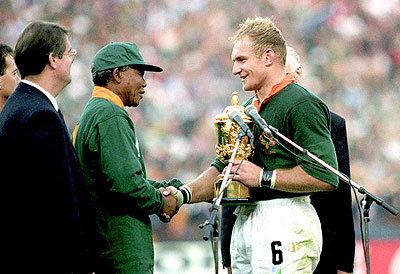Rugby, Mandela’s iconic sporting moment
Following the death of Nelson Mandela, we take a look back at a moment when he used sport to help try and heal a nation.

Nelson Mandela (L) and Francois Pienaar 1995. Net photo.
